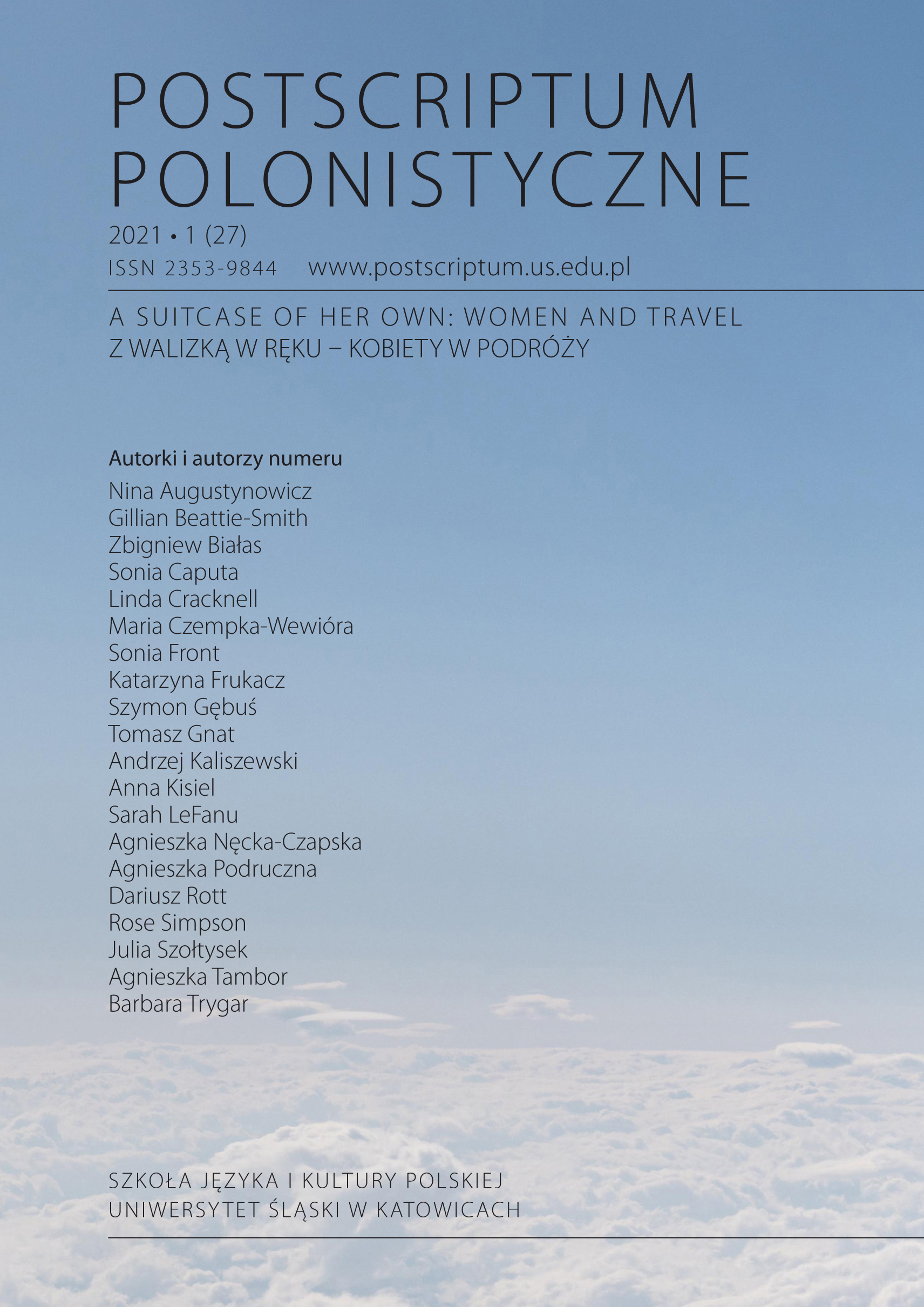“Passengeriality”: Vita Sackville-West’s Passenger to Teheran and the May Coup in Poland
“Passengeriality”: Vita Sackville-West’s Passenger to Teheran and the May Coup in Poland
Author(s): Zbigniew BiałasSubject(s): Language and Literature Studies
Published by: Wydawnictwo Uniwersytetu Śląskiego
Keywords: border crossing; Eastern Europe; Grajewo; May Coup; “passengeriality”; travelogue;Vita Sackville-West;
Summary/Abstract: Travellers’ discourses thrive on anecdotes. According to Stephen Greenblatt, they interpose between a series of similar, narrow experiences and a wider pattern they may indicate. This analysis deciphers how an anecdote from Passenger to Teheran (1926), the travelogue written by Vita Sackville-West, is not just an isolated flash but can indicate larger representational strategies. In her epic journey Vita Sackville-West travelled from London to Egypt, India, Persia, and then back to England, through Russia, Poland and Prussia; by boat, train and car. In the episode which is subject to a detailed analysis, the travellers were stopped at the Polish–East Prussian border and forced to leave the train. The consequences of what could be just an anecdote about an “unwelcome incident”, reverberate – as it turns out – far beyond the incidental because what is at stake at almost every border incident is a socio–political, geo–political, military and ideological reality. No matter whether such events are presented as adventures or in all seriousness, each border trouble has consequences beyond any “local moment”. To disclose some of the less obvious implications of the Polish–Prussian passage in Vita Sackville-West’s book is the aim of this essay.
Journal: Postscriptum Polonistyczne
- Issue Year: 27/2021
- Issue No: 1
- Page Range: 87-103
- Page Count: 17
- Language: English

